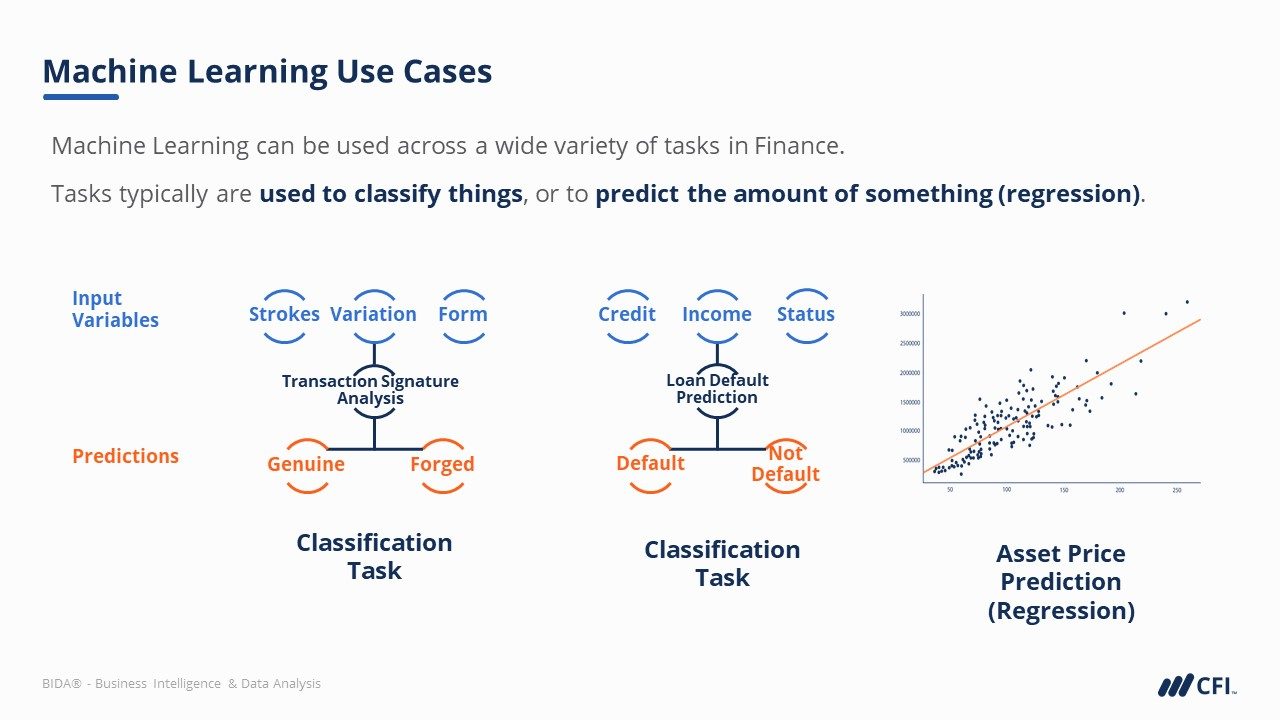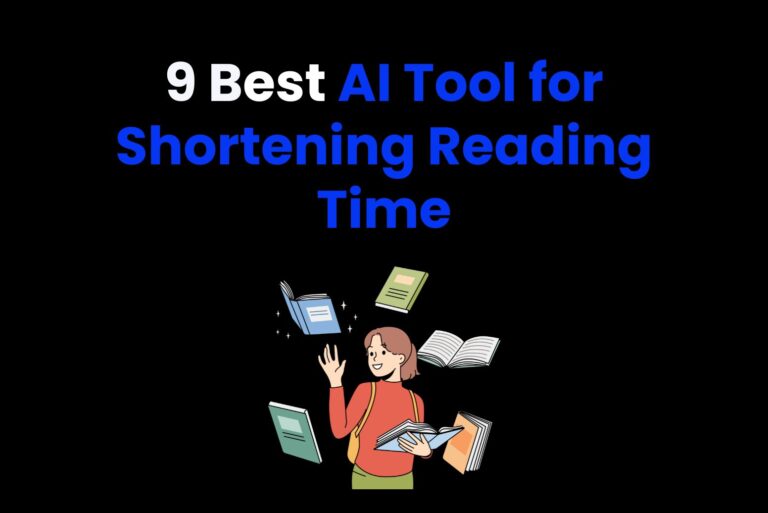AI Tools for Financial Advisors: Simplify Now!
AI tools can efficiently summarize legal documents for financial advisors, saving time and enhancing accuracy. These tools analyze complex language and extract key information quickly.
As financial advisors navigate a sea of legal documents, efficiency becomes essential. AI tools have emerged as valuable assets, streamlining the process of summarizing intricate legal texts. They allow advisors to focus on providing better service to clients rather than getting bogged down in paperwork.
By harnessing advanced algorithms, these tools can distill vital information from lengthy documents, ensuring that critical details are not overlooked. The integration of AI in legal document analysis not only boosts productivity but also enhances compliance and risk management. Embracing these technologies can transform the way financial advisors manage their workload and improve client outcomes.
The Rise Of AI In Finance
The financial sector is rapidly evolving. AI tools are changing how financial advisors operate. These tools help summarize legal documents, analyze data, and enhance client service. Their impact is profound and far-reaching.
Impact On Financial Advisory
AI is reshaping the role of financial advisors. It automates mundane tasks. This allows advisors to focus on strategic planning. Here are some key benefits:
- Efficiency: AI speeds up data processing.
- Accuracy: Reduces human error in calculations.
- Insights: Provides deeper data analysis.
Financial advisors can now offer personalized advice. They can quickly access a client’s financial history. This leads to better decision-making and planning.
Ai And Compliance
Compliance is crucial in finance. AI tools help ensure adherence to regulations. They monitor transactions and flag anomalies. This minimizes risks significantly.
| AI Tool | Function | Benefit |
|---|---|---|
| Document Review AI | Analyzes legal documents | Speeds up compliance checks |
| Transaction Monitoring AI | Tracks financial activities | Detects fraud quickly |
| Risk Assessment AI | Evaluates potential risks | Improves risk management |
AI tools simplify compliance tasks. They save time and reduce costs. Financial firms can operate more smoothly. Trust in AI continues to grow in the financial sector.
:max_bytes(150000):strip_icc()/Roboadvisor-roboadviser_final-9c0f2c35944e4da6aae8646a832069d1.png)
Credit: www.investopedia.com
AI Tools For Legal Document Analysis
AI tools are transforming how financial advisors analyze legal documents. These tools save time and reduce errors. They help advisors focus on what matters most: their clients.
Current Tools On The Market
Many AI tools exist for legal document analysis. Here are some popular options:
| Tool Name | Features | Price |
|---|---|---|
| LawGeex | Contract review, risk assessment | $1,000/month |
| LegalSifter | Document analysis, suggestions | $500/month |
| Kira Systems | Data extraction, pattern recognition | $2,000/month |
Benefits For Financial Advisors
AI tools offer many benefits for financial advisors:
- Time-saving: Quick analysis of large documents.
- Accuracy: Reduces human error in document review.
- Cost-effective: Lowers operational costs.
- Compliance: Ensures adherence to regulations.
- Client Focus: Advisors can spend more time with clients.
Using AI tools enhances efficiency. Financial advisors can make better decisions. They can serve clients faster and more effectively.
Streamlining Workflows With AI
AI tools are transforming how financial advisors handle legal documents.
They help save time and reduce errors. This streamlining leads to better efficiency
and improved client satisfaction.
Automating Tedious Tasks
Financial advisors often face repetitive tasks. AI can automate these tasks effectively.
Consider these benefits:
- Document Review: AI reviews documents quickly.
- Data Extraction: It pulls important data with ease.
- Template Creation: AI generates templates automatically.
Automation allows advisors to focus on their clients. They can provide personalized services.
This leads to better relationships and trust.
Improving Document Accuracy
Accuracy is crucial in legal documents. AI tools enhance this aspect significantly.
Here’s how:
| AI Feature | Benefit |
|---|---|
| Natural Language Processing | Understands context for better interpretation. |
| Error Detection | Identifies mistakes quickly and accurately. |
| Version Control | Keeps track of changes and updates. |
AI tools minimize human error in documents. This results in higher compliance rates.
Financial advisors can trust the accuracy of their documents.
Enhancing Client Relationships
AI tools transform how financial advisors interact with clients. They streamline processes. This leads to stronger, more personalized relationships.
Personalized Advice
Clients appreciate tailored advice. AI tools analyze data quickly. They identify each client’s unique needs. Advisors can then provide customized solutions. This enhances trust and satisfaction.
- Understand individual goals
- Assess risk tolerance
- Offer relevant investment options
Using AI, advisors can track changes in client circumstances. This allows for timely advice. Clients feel valued and understood.
Quicker Response Times
Speed is crucial in financial advice. AI tools help advisors respond faster. Instant data retrieval saves time. Clients receive answers quickly.
| Response Time | Traditional Method | AI-Enhanced Method |
|---|---|---|
| Initial Inquiry | 24-48 hours | Minutes |
| Follow-Up Questions | 1-2 days | Instantly |
| Portfolio Adjustments | Days | Real-time |
Clients enjoy immediate support. Quick responses build strong relationships. They feel confident in their advisor’s abilities. AI tools help advisors stay ahead.
Data Security And Ethics In AI
AI tools are transforming how financial advisors manage legal documents. However, they raise concerns about data security and ethics. Protecting sensitive information and ensuring ethical AI use is crucial for trust.
Protecting Sensitive Information
Financial advisors handle a lot of personal data. This data needs strong protection. Here are some key points:
- Encryption: Encrypt data to keep it safe from hackers.
- Access Control: Limit access to authorized personnel only.
- Regular Audits: Conduct audits to find and fix vulnerabilities.
Data breaches can harm clients and advisors. Implementing strong security measures is essential.
Ethical AI Use
Ethics in AI ensures fairness and accountability. Here are important aspects:
- Transparency: Explain how AI makes decisions.
- Bias Mitigation: Identify and reduce biases in AI systems.
- Client Consent: Obtain permission before using client data.
Ethical practices build trust with clients. Financial advisors must prioritize ethical AI use.
Case Studies
Understanding how AI tools help financial advisors is essential. Case studies show real-world applications. They reveal success stories and lessons learned from using AI for legal document summaries.
Success Stories
Many financial advisors have embraced AI tools. Here are some notable successes:
- Firm A: Used AI to cut document review time by 50%.
- Firm B: Increased client satisfaction by 30% with faster summaries.
- Firm C: Saved $100,000 annually by automating document processes.
| Firm | Achievement | Impact |
|---|---|---|
| Firm A | Reduced review time | 50% faster service |
| Firm B | Improved client satisfaction | 30% increase |
| Firm C | Cost savings | $100,000 annually |
Lessons Learned
Successful firms learned valuable lessons using AI tools:
- Start Small: Begin with one task to test the tool.
- Train Staff: Ensure all team members understand the technology.
- Monitor Results: Regularly review performance and adjust strategies.
- Gather Feedback: Listen to clients for continuous improvement.
These insights help other financial advisors. They provide a roadmap for adopting AI successfully.
Integrating AI into Your Practice
AI tools are transforming how financial advisors work. They make tasks easier and faster. Legal document summaries are a prime example. Integrating these tools boosts efficiency and accuracy.
Training And Adoption
Training staff is vital for successful AI integration. Here are some key points to consider:
- Interactive Workshops: Provide hands-on sessions to build skills.
- Online Courses: Use e-learning for flexible training options.
- Mentorship Programs: Pair new users with experienced staff.
- Regular Updates: Keep everyone informed on new features.
Adoption becomes easier with proper training. Create a supportive environment. Encourage questions and feedback. This helps everyone adapt quickly.
Overcoming Challenges
Integrating AI tools can face hurdles. Common challenges include:
| Challenge | Solution |
|---|---|
| Resistance to Change | Communicate benefits clearly and involve staff in decisions. |
| Technical Issues | Provide IT support and regular system checks. |
| Data Security Concerns | Ensure compliance with regulations and invest in secure systems. |
Addressing these challenges is essential. Regularly evaluate the integration process. Adjust strategies as needed. Create a culture of continuous improvement.

Credit: corporatefinanceinstitute.com
The Future Of AI in Financial Advisory
The financial advisory sector is rapidly evolving. AI tools are reshaping how advisors work. They streamline processes and enhance client interactions. Legal document summaries are just one area of transformation.
Predictions
Experts predict several changes in the financial advisory landscape:
- Increased Efficiency: AI will automate routine tasks.
- Better Decision-Making: Enhanced data analysis will lead to smarter choices.
- Personalized Services: AI can tailor advice to individual needs.
- Regulatory Compliance: Tools will help manage legal requirements easily.
These changes will make financial advisors more effective. Clients will benefit from faster, more accurate advice.
Staying Ahead Of The Curve
Financial advisors must embrace AI tools for success. Here are key strategies:
- Continuous Learning: Stay updated on AI advancements.
- Invest in Technology: Use the latest AI tools for efficiency.
- Client Education: Teach clients about AI benefits.
- Networking: Connect with other professionals using AI.
Implementing these strategies will help advisors lead the market. The future of financial advisory is bright with AI.

Credit: blog.salesforceairesearch.com
Frequently Asked Questions
What Are AI Tools For Legal Document Summarization?
AI tools for legal document summarization help financial advisors streamline their workflow. They analyze lengthy legal texts and extract key information quickly. This saves time and enhances understanding of critical clauses. By using these tools, advisors can focus on providing better client service.
How Do AI Tools Benefit Financial Advisors?
AI tools benefit financial advisors by automating document analysis. They reduce the time spent reviewing legal documents, allowing for quicker decision-making. Advisors can access summarized information, making it easier to understand complex legal terms. This improves efficiency and enhances client relationships through timely advice.
Are AI Tools Accurate For Legal Summaries?
Yes, AI tools are generally accurate for legal summaries. They utilize advanced algorithms to analyze texts and extract essential details. However, it’s important to review the summaries for critical nuances. Relying solely on AI without human oversight can lead to misunderstandings in legal contexts.
Can AI Tools Handle Complex Legal Documents?
Absolutely, AI tools are designed to handle complex legal documents. They can process multifaceted contracts and regulations effectively. These tools identify important sections and summarize intricate details. This capability is crucial for financial advisors dealing with comprehensive legal materials.
Conclusion
AI tools are transforming how financial advisors handle legal documents. They streamline the process, saving time and reducing errors. By leveraging these technologies, advisors can focus on delivering better client service. Embracing AI not only enhances efficiency but also positions firms for future growth in a competitive landscape.




